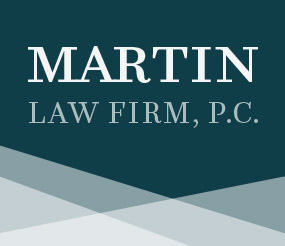Estate Litigation Lawyers in Bucks County
Resources
Practice Areas
Schedule a Case Evaluation Today
Estate Litigation

Litigation involving Wills, Trusts, and Estates is a growing area of law. Controversies among families are emotional and delicate and require experience and sensitivity due to the stakes involved. These matters can divide a family, especially when someone acts inappropriately for his or her own financial gain at the expense of others.
General Litigation Matters
The Martin Law Firm, P.C. estate litigation services include the following:
- Litigation involving the interpretation of Wills and Trusts
- Representation in Will contest matters
- Evaluation and litigation of claims for undue influence
- Evaluation and litigation of claims involving a lack of mental capacity
- Assisting executors and trustees on handling other controversies and disputes
- Review or preparation of fiduciary accountings
- Representation in claims involving a spousal elective share
Personal Representative Duties
The Personal Representative (executor or administrator) have the same responsibilities and duties and they must perform certain tasks required by Pennsylvania law. The usual tasks are:
- Locating the assets of the deceased individual
- Protecting the assets
- Identifying debts or liabilities of the deceased individual and settling any estate claims
- Notifying the heirs and third party creditors or other interested parties
- Opening an estate bank account
- Selling real estate and other assets
- Preparing and filing an estate inventory
- Preparing a formal or informal accounting
- Distributing the assets to heirs
- Implementing tax savings strategies
Will Contest
One of the most common estate litigation matters is when a family member challenges or contests the validity of a Will. This often occurs when an individual was left out of the Will entirely or the individual did not receive a fair share. If a person successfully contests a Will, the Will is deemed invalid or unenforceable. When this occurs, the decedent’s estate will be distributed according to the terms of a prior Will or, if none exists, the estate will be distributed pursuant to the Pennsylvania Intestacy Laws. Some of the common grounds to contest a Will are the following:
- Lack of Testamentary Capacity. Section 2501 of the Pennsylvania Probate, Estates and Fiduciary Code requires that the person who makes the Will must be at least 18 years old and of “sound mind”. In other words, if a person has senility, dementia, or is otherwise lacking in mental capacity; it can be presumed that the person did not know the consequences of his or her conduct when he or she executed the Will. Specifically, elements to consider for whether a person had testamentary capacity to create a Will include whether the person was aware of the extent and value of his or her property, the persons who are natural beneficiaries, and the disposition he or she made.
- Undue Influence. Undue influence is persuasion, pressure or influence by someone short of actual force but stronger than mere advice. Undue influence requires three elements that must be proven. First, the testator (the person who created the Will) must be in a confidential relationship with the person who unduly influenced the testator. Second, the person must have received a “substantial benefit” from the Will. Third, the testator must have a “weakened intellect”. When it can be shown that a person close to the testator gained a substantial benefit from a person of weakened intellect, then the burden of proof shifts to the person who benefited to prove that he or she did not exercise undue influence over the testator.
- Fraud. Fraud is an act that induces a person to dispose of his or her property or to do some act contrary to his or her wishes in such a way that he or she would not do but for the fraud. Fraud is difficult to prove when someone is contesting a Will because there are usually only two witnesses to the fraud: the testator who is deceased and the person who allegedly committed the fraud. A fraud situation occurs when a person intentionally misrepresents something to the testator about a potential beneficiary that convinces the testator to leave more money for the person who committed the fraud instead of the potential beneficiary.
- Forgery. Forgery is an unauthorized signing of a Will by another, the fabrication of Will contents over the testator’s general signature, or the substitution of one page of a Will with another. Evidence required proving a forgery often includes a handwriting expert to confirm that the signature is not the genuine signature of the testator.
- Mistake. A mistake can occur when the testator thinks he or she is signing another document – not the Will or where the testator unintentionally signs the Will.
Breach Of Fiduciary Duty
A fiduciary is a person who stands in a position of trust. Fiduciaries are held to the highest standard of care and must act in the best interest of another person. An executor of a Will, an administrator of an estate, or a trustee of a Trust is considered a “fiduciary” under Pennsylvania law. In this context, the fiduciary must act in the best interests of the beneficiaries of the estate.
A claim for breach of fiduciary duty usually involves an allegation that a person made poor investments, mismanaged trust or estate assets, engaged in self-dealing, favored certain beneficiaries, or other questionable decisions. These claims, if proven, can subject the fiduciary to a surcharge, damages for lost profits, damages for lost principal and interest, and termination or replacement.
A typical defense for any action for breach of fiduciary duty is to show that the actions of the executor, administrator or trustee are compliant with Pennsylvania law and within the bounds of the relevant Will or Trust. For example, a dispute involving a trustee’s financial investments would hinge upon whether a judge may understand those investments to be prudent investments considering all of the circumstances.
Spousal Elective Share

A surviving spouse has legal rights and remedies in situations when the deceased spouse disinherits the surviving spouse. Under Pennsylvania law, when a married person who is a resident of Pennsylvania passes away, the surviving spouse has a right to an elective share of one-third of the following property:
- property passing from the decedent by will or intestacy;
- income or use for the remaining life of the spouse of property conveyed by the decedent during the marriage to the extent that the decedent at the time of his death had the use of the property or an interest in or power to withdraw the income thereof;
- property conveyed by the decedent during his lifetime to the extent that the decedent at the time of his death had a power to revoke the conveyance or to consume, invade or dispose of the principal for his own benefit;
- property conveyed by the decedent during the marriage to himself and another or others with right of survivorship to the extent of any interest in the property that the decedent had the power at the time of his death unilaterally to convey absolutely or in fee;
- survivorship rights conveyed to a beneficiary of an annuity contract to the extent it was purchased by the decedent during the marriage and the decedent was receiving annuity payments therefrom at the time of his death; and
- property conveyed by the decedent during the marriage and within one year of his death to the extent that the aggregate amount so conveyed to each donee exceeds $3,000, valued at the time of conveyance.
The surviving spouse does not have a right to an elective share of the following property:
- any conveyance made with the express consent or joinder of the surviving spouse;
- the proceeds of insurance, including accidental death benefits, on the life of the decedent;
- interests under any broad-based nondiscriminatory pension, profit sharing, stock bonus, deferred compensation, disability, death benefit or other such plan established by an employer for the benefit of its employees and their beneficiaries; and
- property passing by the decedent’s exercise or non-exercise of any power of appointment given by someone other than the decedent.
Litigating the spousal elective share requires a careful analysis of each asset to determine whether it is inclusive in the surviving spouse’s claim. In some instances, a particular asset may not fit squarely within an inclusion or exclusion. When this occurs, the parties to the dispute must reconcile the dispute through a settlement or a persuasive argument must be presented to the Court for a positive judicial outcome.
Estate Litigation Attorneys - The Martin Law Firm, P.C.
Litigation involving Wills, Trusts and Estates requires experience with the process and procedure of the Orphans’ Court and knowledge of the law. The Martin Law Firm estate litigation attorneys are very careful to analyze each new case to establish the likelihood of success and to convey this to the client so the client can make an informed decision about whether to proceed. Litigation matters are lengthy, time consuming and sometimes costly. As such, these matters should only be considered when the facts and circumstances of the case are likely to lead to a favorable outcome. Contact the Martin Law Firm, P.C. today at (215) 646-3980.
Please call (215) 646-3980 to schedule an appointment.
Practice Areas
Our legal team provides individualized legal solutions for our clients by offering high quality legal counsel and representation in diverse areas of law. Our attorneys regularly represent clients throughout Southeast Pennsylvania, including Montgomery County, Bucks County, Chester County, Delaware County, and Philadelphia County.
Tell Us About Your Case
Please submit the form and an attorney will contact you shortly.
Please indicate how you would like to be contacted in the form.
